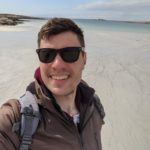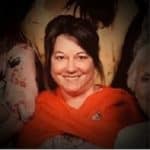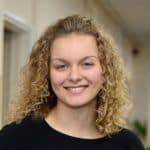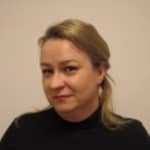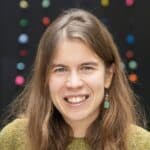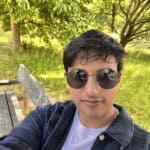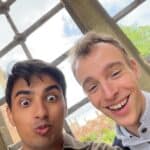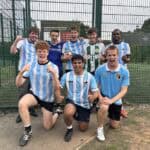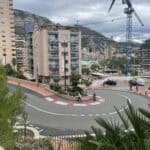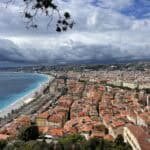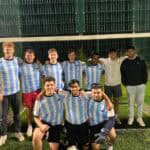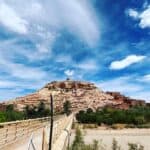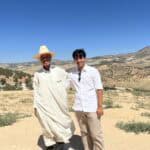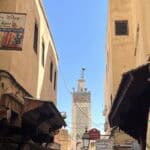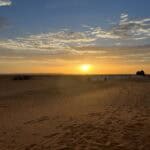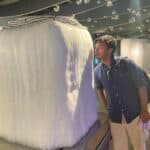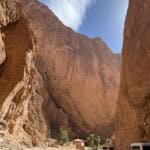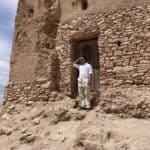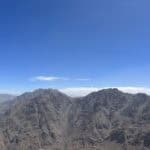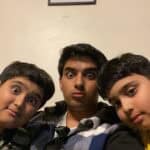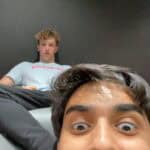Profile
Uzair Abdullah
-
About Me:
I’m from Swansea but now live and work in Cambridge researching computational materials science, using code to understand how materials behave. I love reading about all sorts of fascinating ideas 📚, travelling ✈️, and playing football with my friends’ team “LessThan Athletic” (we’re all actually quite athletic 💪)!
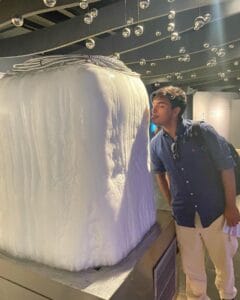
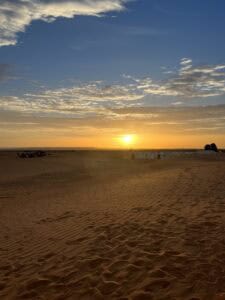
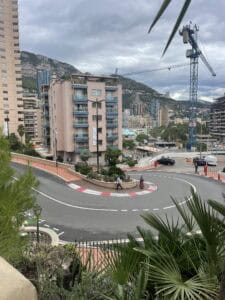
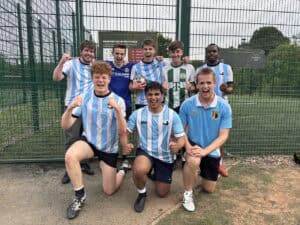
-
Read more
I was born and grew up in Swansea, right by the sea in South Wales, and I’ve always loved exploring how the world works, whether through science, sport, or stories. At school, I was always curious about both maths and people, which led me to study engineering and now work in computational materials science, where I use coding and data to understand how materials behave and perform.
Outside of work, football has been a big part of my life, I’ve played semi-professionally and now play for a five-a-side team called “LessThan Athletic”, which is a bit of a joke name because we all actually try pretty hard and quite athletic! I also enjoy early morning runs, reading books about everything from physics to philosophy to fantasy, and travelling to new places where I can meet different people, try new foods, and learn new languages.
Whether I’m coding in the lab or kicking a ball on the pitch, I like working with others, pushing myself to learn more, and finding fun in what I do.
-
My pronouns are:
he/him
-
My Work:
I use scientific computing to model plasma reactors, like those in nuclear fusion research, creating digital twins to test and improve designs before building real systems.
-
Read more
I work in scientific computing to help with nuclear fusion research. Nuclear fusion is the process that powers the Sun. If we can do it on Earth, it could give us a clean and endless source of energy. But fusion is very hard to control, and building real reactors is expensive and takes a lot of time.
To make progress faster, we use computer models to build something called a digital twin. This is a virtual version of a real fusion reactor. It lets scientists test how the reactor would behave in different situations, without needing to build it first. This saves time, money, and helps make better designs.
We use powerful supercomputers to run these models. They can do huge amounts of calculations very quickly. This helps us understand what’s happening inside the reactor, like how heat and particles move, and how the machine reacts over time.
My work is all about making these models better. By improving how accurate and fast they are, I help researchers get closer to making fusion power a reality, a future with clean, reliable energy for everyone.
-
My Typical Day:
I wake up and have breakfast (usually toast and tea). I get to the computer lab by 9am, where I spend the morning writing code and running simulations. At lunch, I eat with friends from my course. In the afternoon, I look at the results of my models and try to make them better. I finish around 5pm and sometimes go to a college event or relax with a book.
-
Read more
I’m studying for an MPhil in Scientific Computing at Cambridge, which means I use maths and computer programming to solve real-world science problems. My work focuses on using code to model nuclear fusion, the same process that powers the Sun, to help design better reactors for clean energy.
Most days, I start in the computer lab by writing or testing code. I use programming languages like Python or C++ to build simulations, which are like virtual experiments. These help us understand how fusion reactors work without needing to build a real one each time.
I also spend time checking the results of my simulations, fixing errors, and improving the model. Some afternoons, I meet with my supervisor or other researchers to talk about progress and next steps. Even though I’m not in a lab with test tubes, I’m still doing science, just with computers instead of chemicals!
In the evenings, I might go to talks, work with other students, or enjoy events at my college.
-
What I'd do with the prize money:
If I win the £500 prize money, I’d use it to run fun and interactive coding workshops in schools, showing how computers are used in science, especially in exciting fields like nuclear fusion.
Students would get to build simple simulations, explore virtual reactors, and learn how coding helps solve big problems like climate change. I’d also create easy-to-follow guides and videos, so teachers can keep using the materials in future lessons and reach even more students.
-
Education:
I went to Ffynone House School, an independent school in Swansea, where I really enjoyed all my subjects, but particularly science and maths. I was always curious about how things worked, from engines to the stars, and I liked solving problems. That’s when I started thinking I might want to become an engineer or scientist one day.
After GCSE, I stayed on for Sixth Form to study for my A-Levels. I chose subjects Maths, Further Maths, Physics, and Chemistry, which were tough but really rewarding. These helped me build the skills I needed to apply to university, and I eventually got accepted onto one of the most competitive courses in the country, MMath Mathematics at the University of Warwick.
In my first year studying Mathematics, I was fascinated by the subject, but I soon realised my real passion was in applied maths and the physical sciences. I was more drawn to solving real-world problems, which led me to switch to Engineering. That experience taught me it’s okay to try things out, they help guide you in the right direction, and that it’s important to be brave and trust your instincts.
I did my undergraduate degree in Engineering, where I learned about everything from mechanical systems to programming. During that time, I discovered I really enjoyed using computer models to simulate real-world science problems, it was like running experiments on a screen.
Now I’m doing an MPhil in Scientific Computing at the University of Cambridge. I use powerful computers to model things like nuclear fusion, which is the same process that powers the Sun. It’s exciting to be working on problems that could help shape the future of clean energy.
-
Qualifications:
GCSE: Mathematics – 9, English Language – 9, English Literature – 9, Biology – 7, Chemistry – 9, Physics – 9, History – 9, Drama – 9, Latin – 9, Arabic – A, ICT – A*
A-Level: Mathematics – A*, Further Mathematics – A*, Chemistry – A*, Physics – A*
Bachelor’s Degree: BSc Engineering
-
Work History:
Undergraduate Researcher, Warwick Centre for Predictive Modelling
-
Developed a machine-learning model to analyse heat exchange data in UK homes, contributing to research on dynamic energy pricing.
-
Learned to manage large public datasets and present findings to diverse audiences, from industry experts to the general public.
Research Intern, Warwick Manufacturing Group (WMG)
-
Investigated structural changes in S275 steel during thermal/chemical processing using Python-based analysis.
-
Gained hands-on lab experience with materials processing and microscopy, collaborating closely with senior researchers.
Independent Researcher, COVID-19 Mathematical Modelling
-
Self-initiated project during the pandemic to model virus spread using Python.
-
Learned how to communicate complex scientific ideas to non-specialist audiences, highlighting the real-world application of maths and coding.
Community Programmer, Project Euler
-
Regularly solve complex mathematical challenges with C# and C on projecteuler.net.
-
This hobby keeps me grounded in the fundamentals of programming while nurturing my problem-solving instincts.
Teaching, Volunteering, and Coaching Roles
-
From coaching youth football to tutoring STEM online and helping at a local food bank, these roles taught me leadership, empathy, and the value of community support.
-
These activities weren’t directly related to engineering but reinforced soft skills crucial to any professional path.
-
-
Current Job:
Researcher and Master’s Student
-
Employer:
Centre for Scientific Computing, Department of Physics, University of Cambridge
-
My Interview
-
How would you describe yourself in 3 words?
nuclear fusion programming
What did you want to be after you left school?
I wanted to be an engineer or scientist, something that involved solving problems and building cool things.
Were you ever in trouble at school?
Plenty of times! But not for anything serious.
If you weren't doing this job, what would you choose instead?
I’d probably join the Royal Navy. I grew up around the sea, I love routine and discipline, the travel would be amazing, and I’d still get to work with cool technology.
Who is your favourite singer or band?
My music taste changes depending on my mood and the atmosphere. But recently more 2000s stuff like Linkin Park.
What's your favourite food?
Ice cream. A bit unorthodox, but 100% true. It’s the perfect mix of sweet, cold, and comforting.
If you had 3 wishes for yourself what would they be? - be honest!
To always stay curious and keep learning. To travel the world and see amazing science being done in different places. To help inspire the next generation of scientists and engineers.
Tell us a joke.
A couple turned up at a fancy dress party, the man giving the girl a piggyback. The man's face was painted green and he had a red mask over his eyes. "So what have you come as?" asked the host. "I'm one of the Teenage Mutant Ninja Turtles," said the man. "And what about her?" asked the host, indicating the girl. "That's Michelle!"
-

